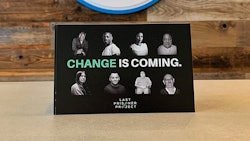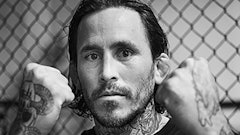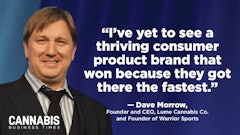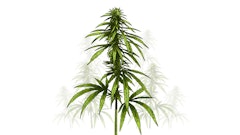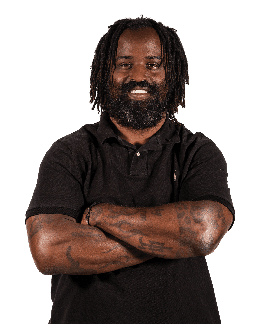
Ricky Williams, a former NFL running back and the 1998 Heisman trophy winner, launched his Highsman cannabis brand in October, with a tagline of “Spark Greatness.” Williams’ goal is to break the stigma around cannabis while positively affecting change in the industry and world around him. The Highsman launch features three cultivars, marketed as Pregame (sativa), Halftime (hybrid), and Postgame (indica), with a message for each that focuses on the plants’ expressions through terpenes and the resulting feelings typically associated with each. Here, Williams, president and co-founder of Highsman, talks with Cannabis Business Times about his inspiration for the launch, how he and his team select cultivation partners and their cultivars, and more.
Zach Mentz: What inspired the launch of the Highsman brand, and how do you distinguish it from other celebrity or athlete brands?
Ricky Williams: As a brand, it’s a real story. Every single person that is involved with sports and every single person that enjoys cannabis has had the same exact struggles that I’ve been through. I think the way I’ve gone through them and been successful is a compelling story that I think everyone can vibe with—[the idea] that, “Wow, I can be myself and still be successful.” And I think that’s something everyone can relate to.
ZM: Fifteen or 20 years ago during your time in the NFL, you were scrutinized for your cannabis usage. What has it been like for you to go from being criticized to celebrated?
RW: Well, it’s a classic story. I consider myself a storyteller, so that’s what I love about the whole thing—the arc of the story. And it reflects so many other areas of my life where things that I was ashamed about I finally got over and realized, “This is BS” ... As a tough football player, you’re not supposed to be sensitive. But as I retired from football, I started traveling around the world consuming cannabis [and] I realized I am sensitive, and I started to appreciate it. Sensitivity helps me be aware of what other people need and how I can be helpful to them. And I started doing that, and it felt really good to me. I realized I’m more of a healer than I am a football player, and I started moving in that direction. I truly believe, beyond medicinal marijuana, what Bob Marley said [about how] cannabis is very healing because it opens our minds and it allows us to be ourselves. It gets us out of the judgment of being ourselves.
READ MORE: The Intersection of Cannabis and Sports: Q&A with Highsman CEO Eric Hammond
ZM: How do you go about sourcing your products and what does quality cannabis mean to you?
RW: Myself and really our team, we’re connoisseurs. We’re … finding the cannabis that we like, and so it’s part of our personal preference. For me, it’s flavor, which is translation for terpenes, because to me it’s about the experience, it’s about the taste, the flavors, and also the experience of how I feel. As we meet with our cultivators, all of us [test everything] and we have conversations about it, and when there’s an agreement, we know we found something quality.
ZM: What is important to you in a cultivation partner?
RW: [What’s] important from my side is their attitude about cannabis, the plant. Some people are more interested in the business side, and of course we have to run a business … but for me as the brand, I feel like it’s my name, it’s my integrity, that what we’re doing is really about what I believe in. It’s a vibe. There are certain things that people say that you can just pick up and you get a sense of their attitude, so I’m always looking for that resonance that it’s a true partnership—one where we are both growing.
ZM: With the Highsman brand, do you play a role in social equity in the cannabis industry? And if so, what is that role?
RW: I feel because I’m African-American and taking the risks that I’m taking, I feel like that’s my life on the line for social equity [and] that I’m actually walking the walk. It’s a personal issue to me because I’ve been pulled over and arrested on some bullshit, and I’ve had players that I coached [be arrested] … so yeah, it’s a major issue. And I’m definitely using my platform to speak on it, but it’s important to me to speak intelligently. I think it’s wonderful that [social equity] is becoming a thing that everyone is taking more seriously, but we need to involve everyone in the conversation. If it’s just the people at the top saying we need to do something, that’s great, but we need to involve everyone in the conversation.









